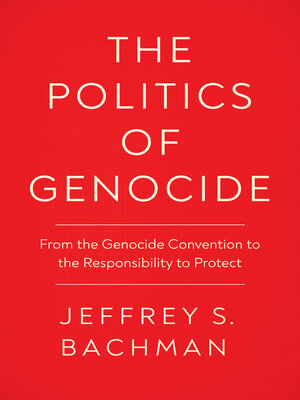The Politics of Genocide
ebook ∣ From the Genocide Convention to the Responsibility to Protect · Genocide, Political Violence, Human Rights
By Jeffrey S. Bachman

Sign up to save your library
With an OverDrive account, you can save your favorite libraries for at-a-glance information about availability. Find out more about OverDrive accounts.
Find this title in Libby, the library reading app by OverDrive.



Search for a digital library with this title
Title found at these libraries:
| Loading... |
Beginning with the negotiations that concluded with the unanimous adoption of the United Nations Convention on the Prevention and Punishment of the Crime of Genocide on December 9, 1948, and extending to the present day, the United States, Soviet Union/Russia, China, United Kingdom, and France have put forth great effort to ensure that they will not be implicated in the crime of genocide. If this were to fail, they have also ensured that holding any of them accountable for genocide will be practically impossible. By situating genocide prevention in a system of territorial jurisdiction; by excluding protection for political groups and acts constituting cultural genocide from the Genocide Convention; by controlling when genocide is meaningfully named at the Security Council; and by pointing the responsibility to protect in directions away from any of the P-5, they have achieved what can only be described as practical impunity for genocide. The Politics of Genocide is the first book to explicitly demonstrate how the permanent member nations have exploited the Genocide Convention to isolate themselves from the reach of the law, marking them as "outlaw states."






